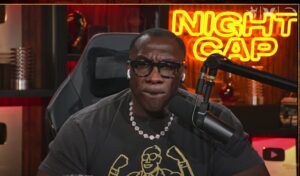
Yellowman scores with Mr Chin
A major basketball fan, Yellowman was sitting courtside at Los Angeles Lakers’ games in the 1980s long before the National Basketball Association (NBA) became popular in Jamaica.
The groundbreaking albino deejay is showing he’s still got game, as his 1982 song Mr Chin is part of the soundtrack to the basketball movie Boogie.
Released early this month by Focus Features, Boogie has grossed US$2.3 million in the United States to date.
Mr Chin is one of the many hit singles Yellowman recorded for producer Henry “Junjo” Lawes during the early 1980s.
Yellowman was not aware of the movie when the Jamaica Observer contacted him for comment. He said the fact that its producers used Mr Chin proves the endurance of his music.
“It show yuh dat di song dem still loved by people all over di world. Dem think it mek sense to use it in a movie,” he noted.
Boogie is written and directed by Eddie Huang, who was born in Washington DC to Taiwanese parents. It stars Taylor Takahashi as basketball player Alfred “Boogie” Chin, whose family is not impressed by his preference of sports glory over academics.
The movie also stars the rapper Pop Smoke who was murdered in New York in February 2020.
Mr Chin is the fifth Yellowman song used in movies. The others are Soldier Tek Over in Club Paradise; Girl Watcher ( The Mighty Quinn); Nobody Move Nobody Get Hurt ( Something Wild) and Zungguzungguguzungguzeng which came in Yardie.
Yellowman’s association with Lawes’ Volcano label brought him fame after years of living in foster homes. At the time, albinos were scorned in Jamaica because of their their lack of pigment.
Mr Chin was recorded with the Roots Radics Band at Channel One. It pokes fun at Chinese shopkeepers for alleged price gouging and hears Yellowman boasting about his conquest of Chinese girlfriends.
By the mid-1980s, he and Lawes’ parted ways and Columbia Records signed him. That deal helped give Yellowman an international profile that saw him hanging out with National Basketball Association (NBA) stars like the Lakers’ Kareem Abdul Jabar, after whom he named one of his sons.
He described Lawes, who was murdered in London in 1999, as a “good producer” who took a big chance on him.
“Him discover sey mi have di potential to mek miself a great artiste an’ wi always thankful fi dat,” he said.























